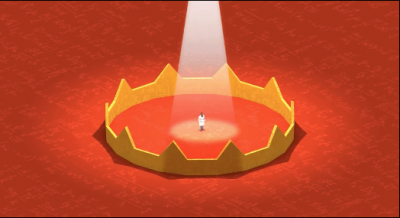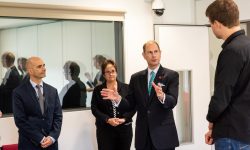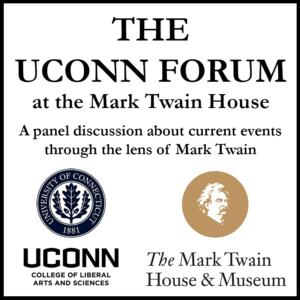-

Photo by Maarten Wijnants on Unsplash
Intellectual humility: the importance of knowing you might be wrong
Vox.com article
Intellectual humility: the importance of knowing you might be wrong
Why it’s so hard to see our own ignorance, and what to do about it.
“A Royal Visit” by Alessandra Tanesini
Deborah Mower – “Moral Conviction and Civility” 12/6/18
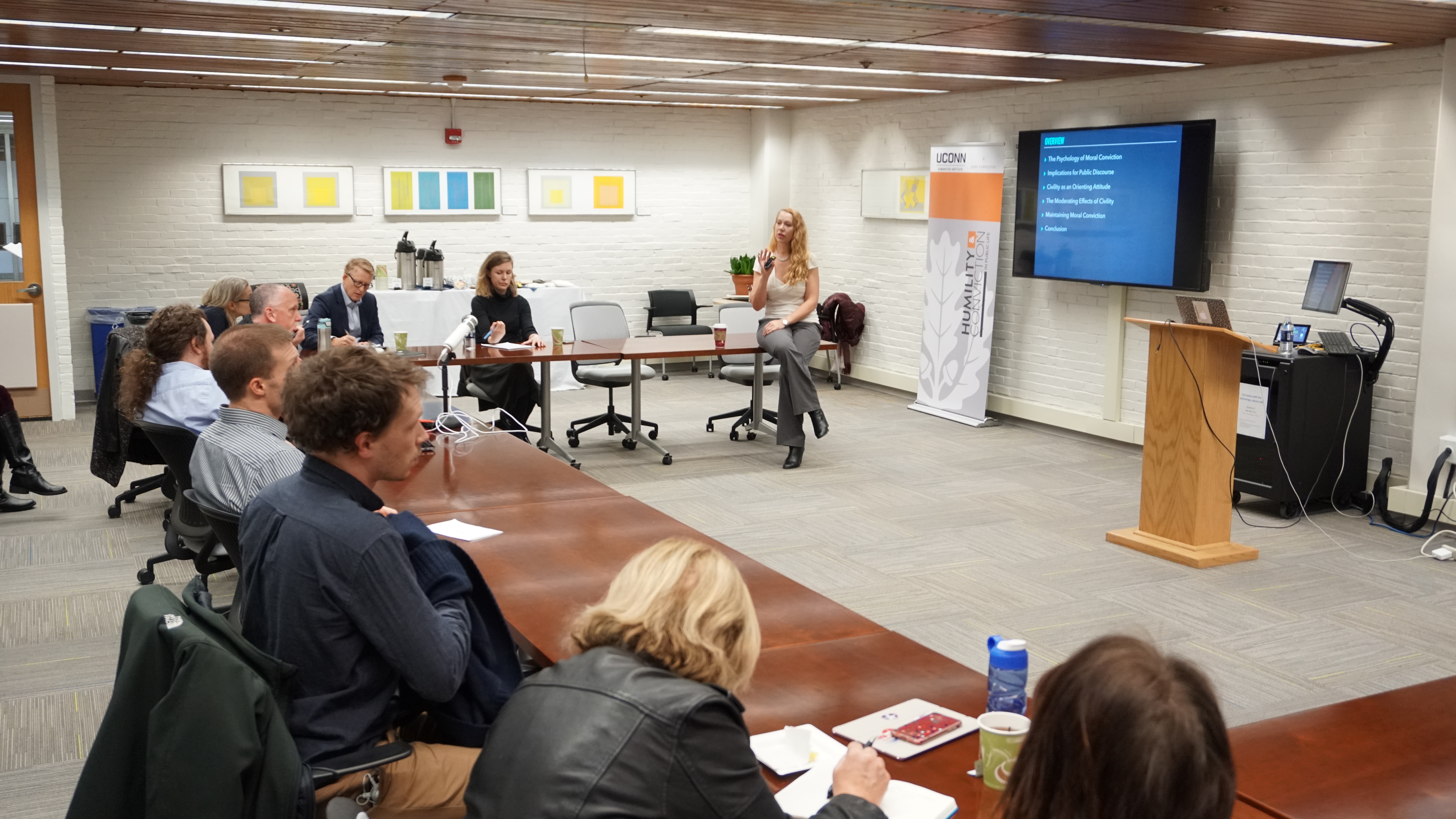
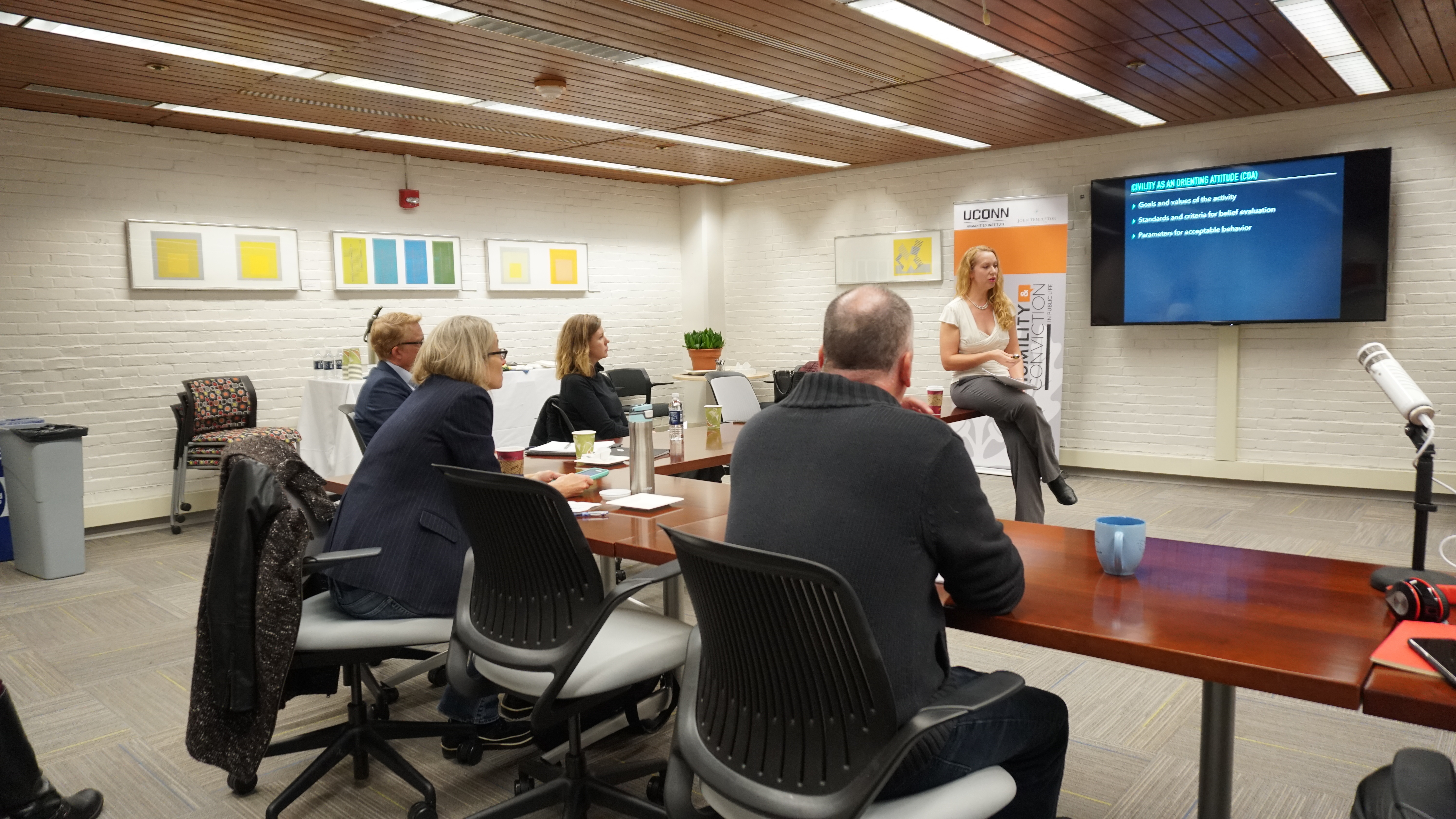
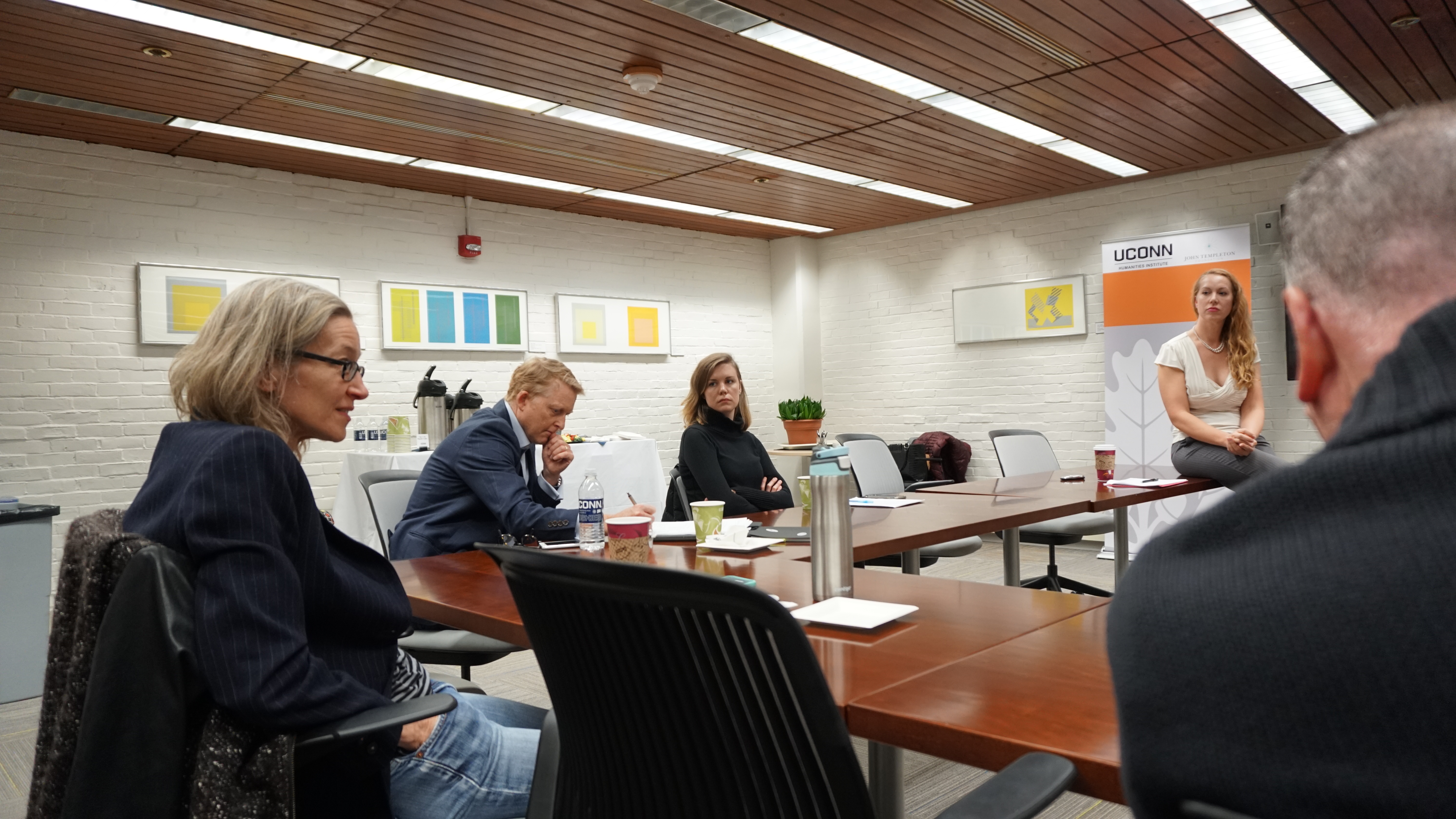
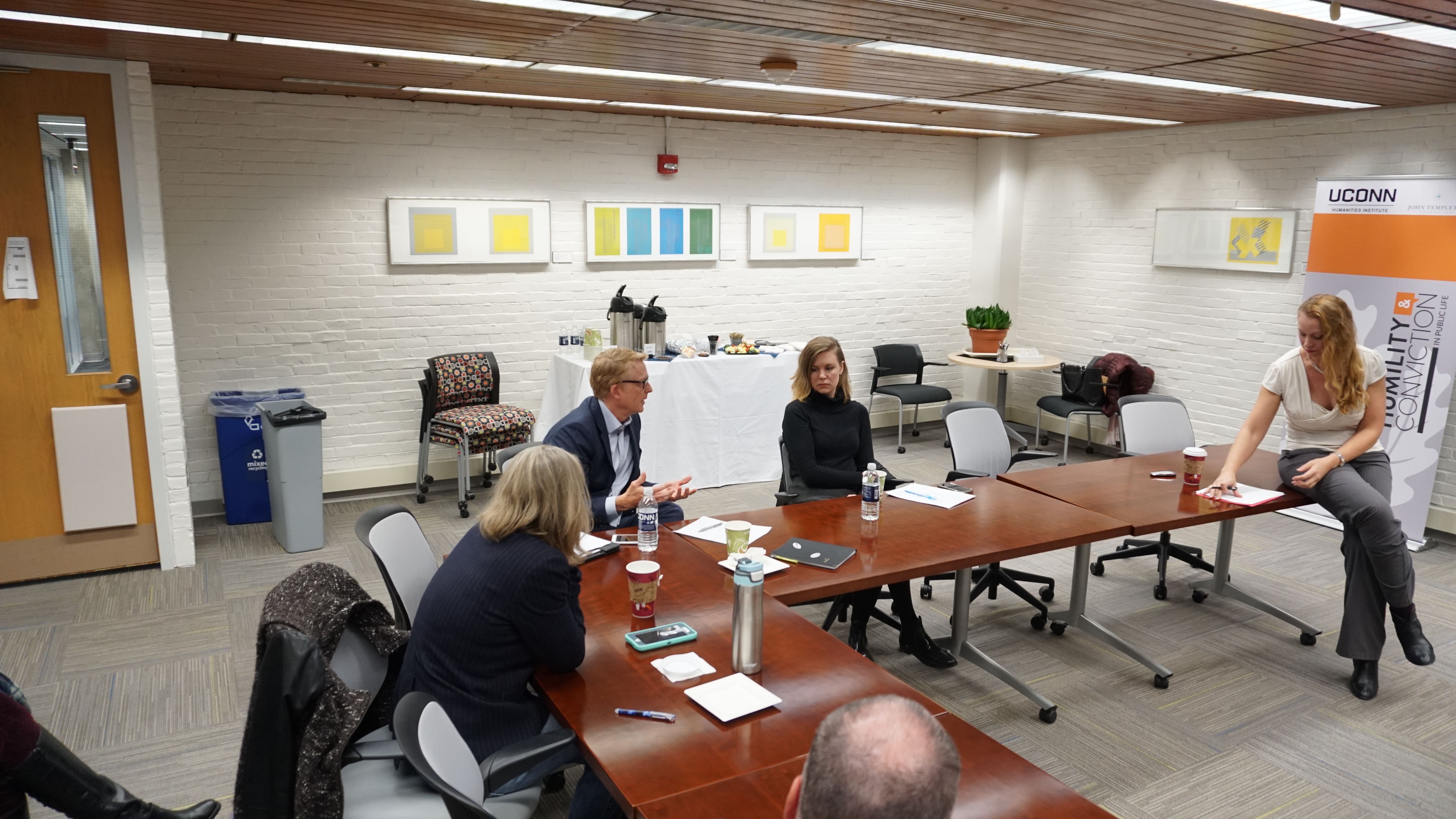
SEWing Circle Featured Speaker: Deborah Mower
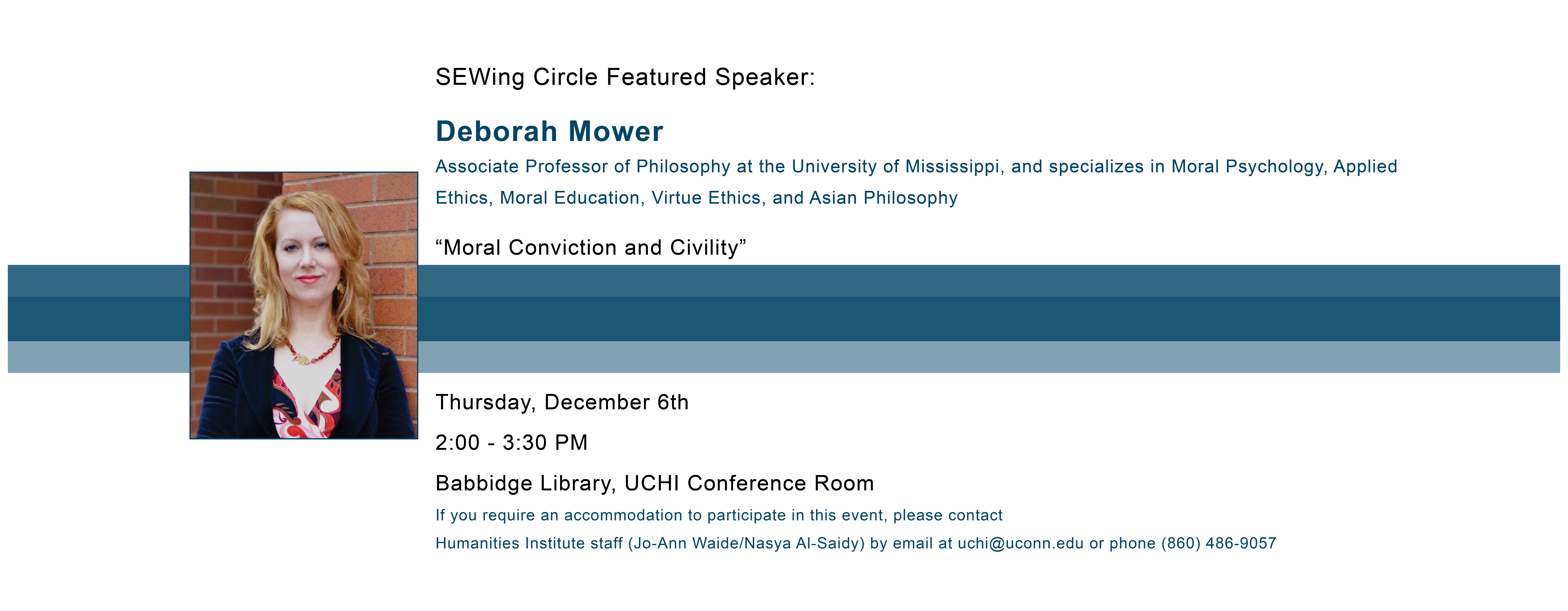
“Moral Conviction and Civility”
Thursday, December 6, UCHI Conference Room, 2:00 – 3:30 PM
Deborah Mower is an Associate Professor of Philosophy at the University of Mississippi, and specializes in Moral Psychology, Applied Ethics, Moral Education, Virtue Ethics, and Asian Philosophy.
American political discourse has always been combative but recent years have brought a marked increase in incivility, vitriol, and violence among both private citizens and public figures. While there are doubtless many causes for this increase, there is a corresponding rise in identity politics, polarization, information filtering and avoidance, heightened moral judgment, and adoption of outrage culture. Psychologists have studied the phenomenon of moral conviction and offer helpful ways to understand at least part of this recent rise of incivility. Moral conviction is a specific attitude subjects take toward some issue and is characterized by universality, objectivity, autonomy, and emotional intensity, yielding increased motivation and justification for action (Skitka 2010). Clearly, moral conviction matters for our individual choices and for motivating moral progress, but it also carries a dark side of incivility, intolerance, non-engagement (avoidance), and violence toward those who are thought to hold different moral views. I offer an account of civility as an orienting attitude toward the procedures and standards of dynamic exchange. As an orienting attitude, civility can moderate moral conviction by promoting its positive functions while limiting its dark outcomes.
Encounters: The Conference – November 17, 2018
The Encounters Conference at the UConn Hartford campus on November 17, 2018 was an overwhelming success. There were so many community members there to discuss and learn to lead their own discussions.
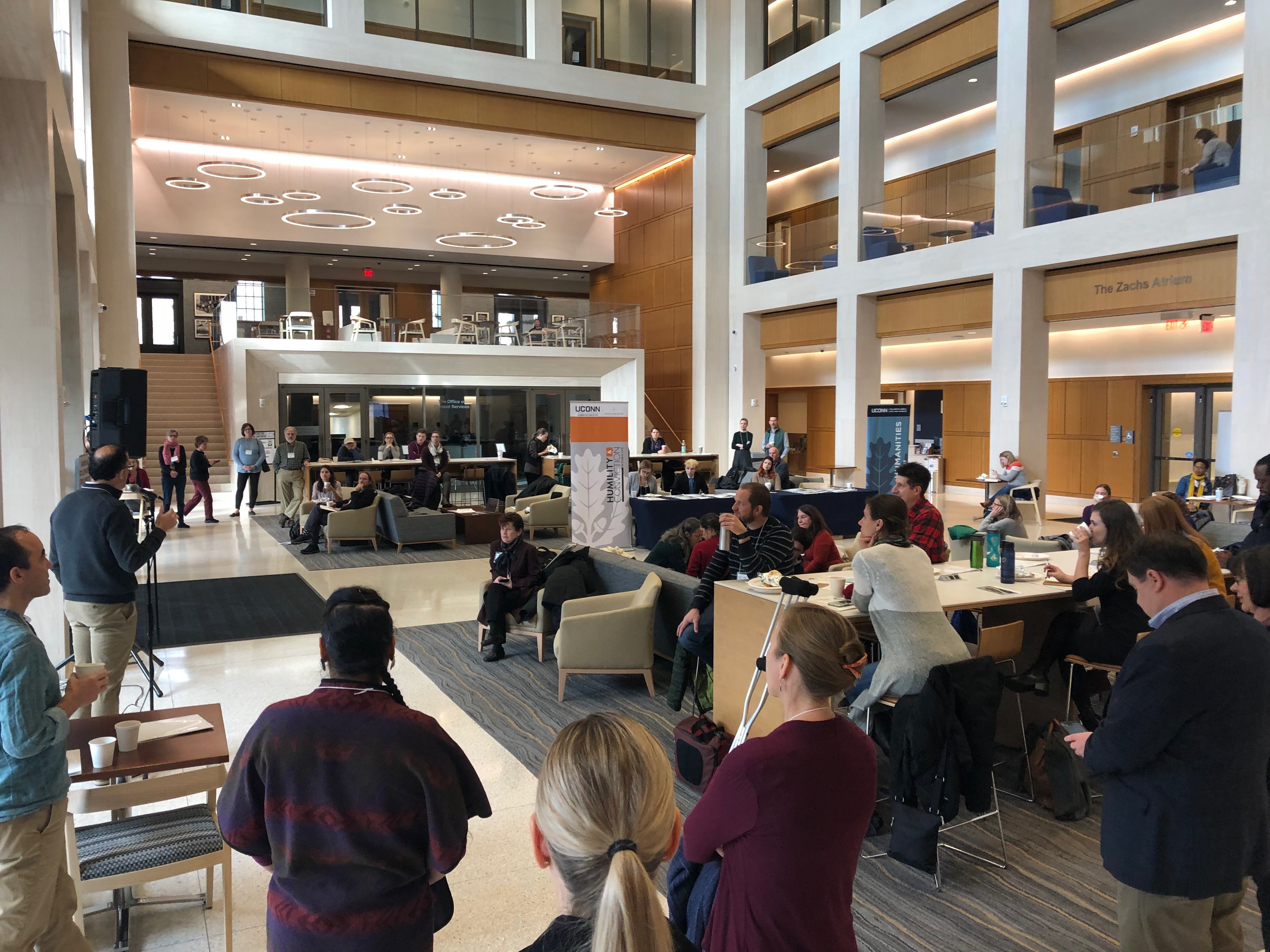
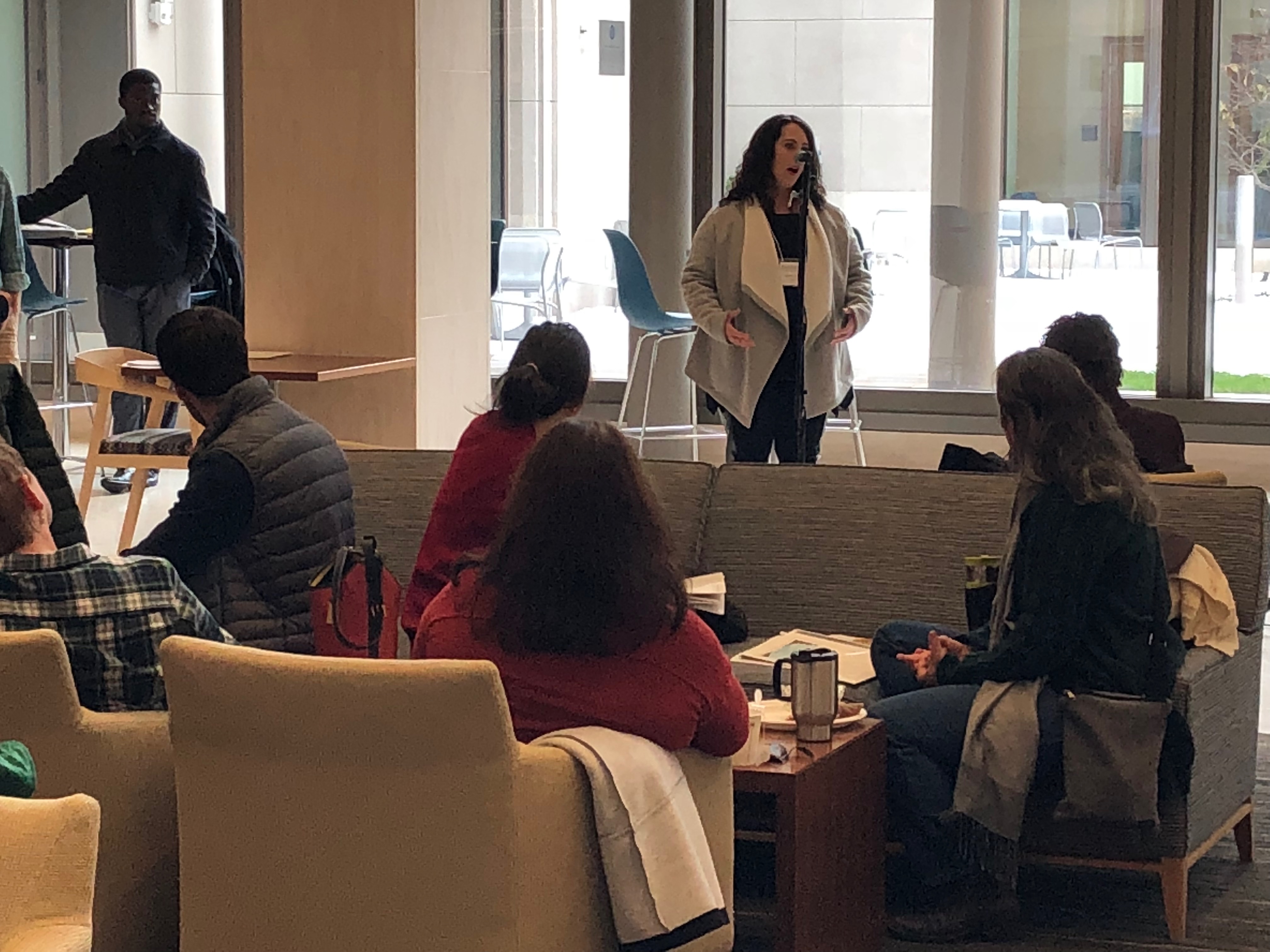
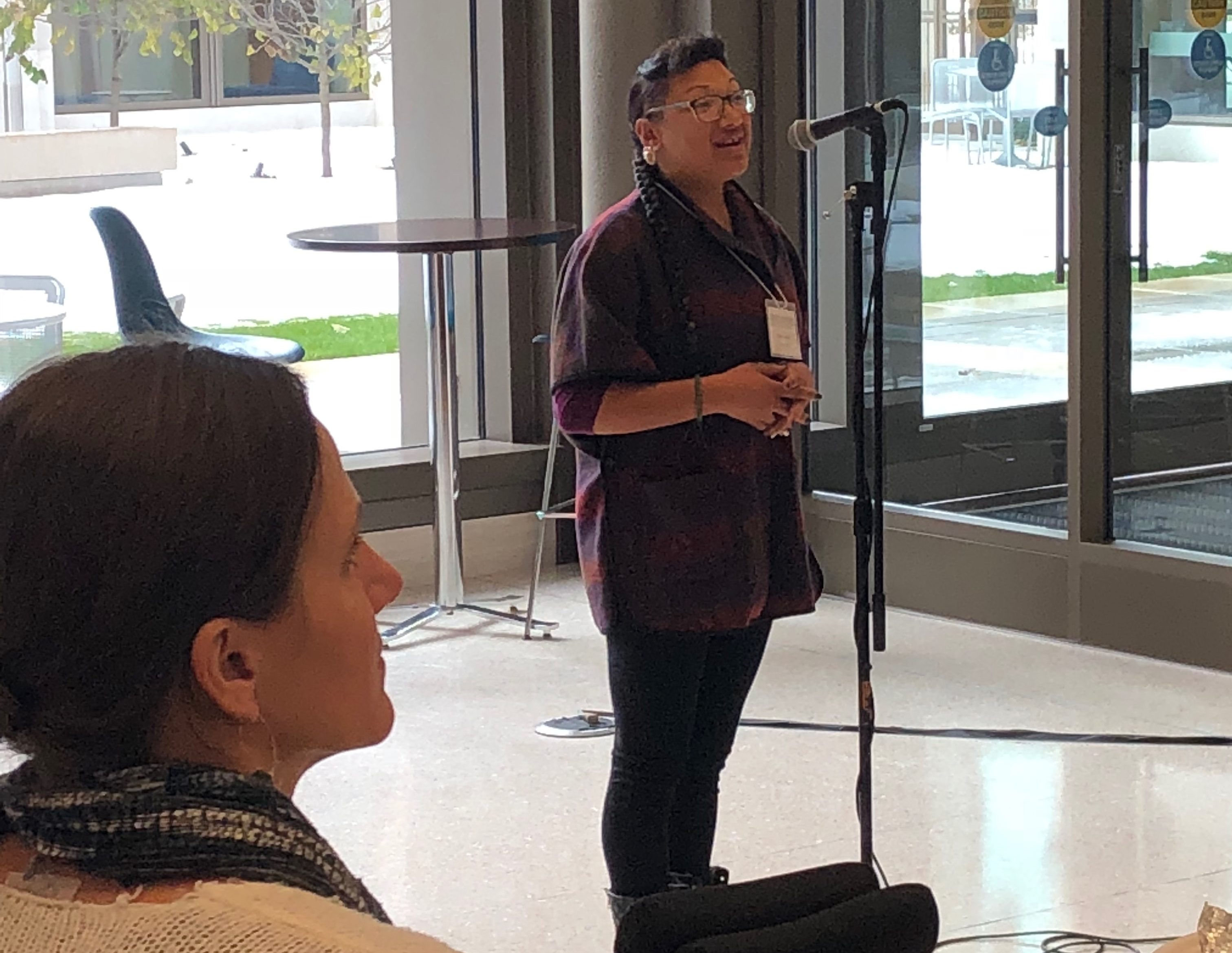
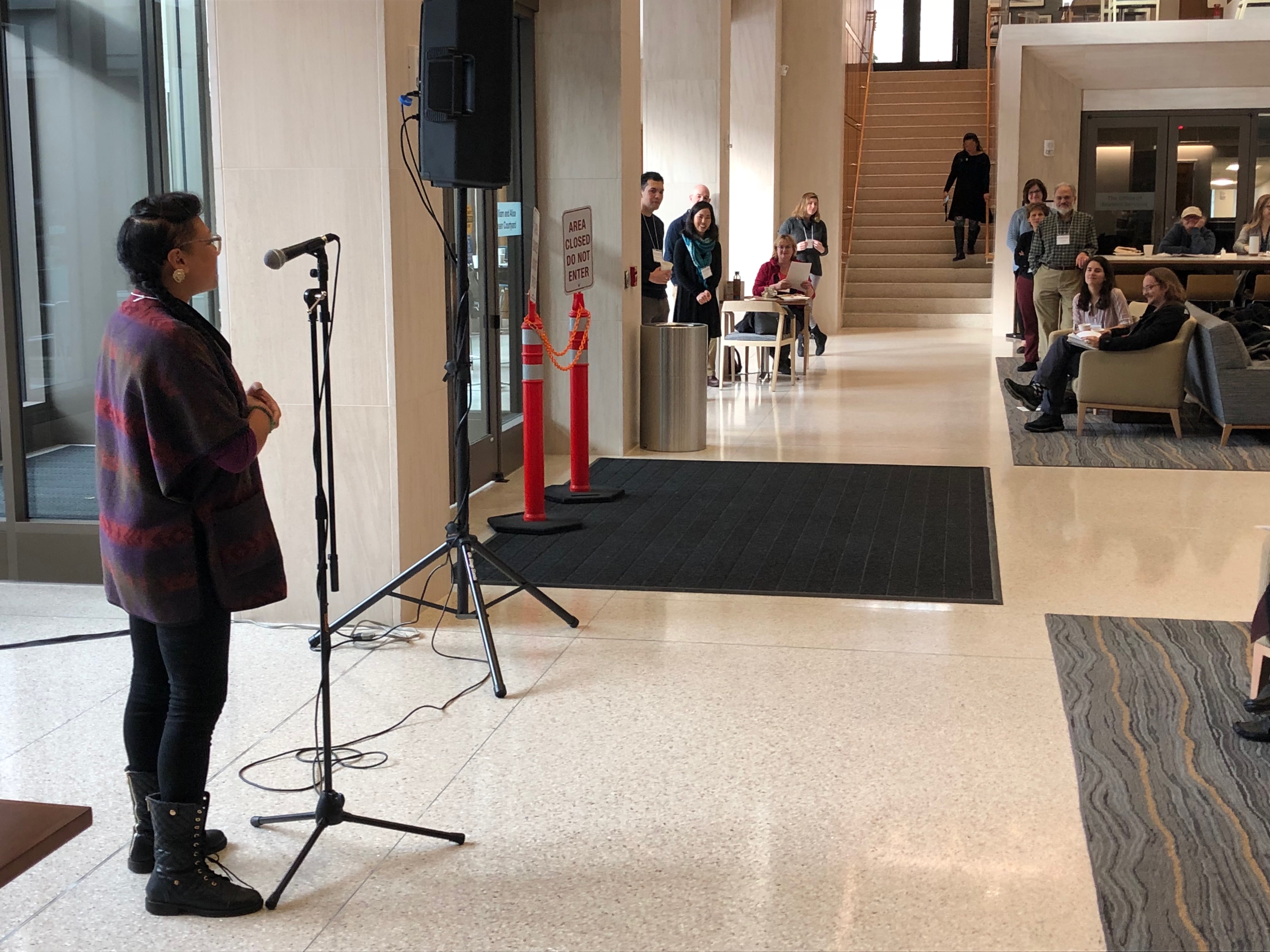
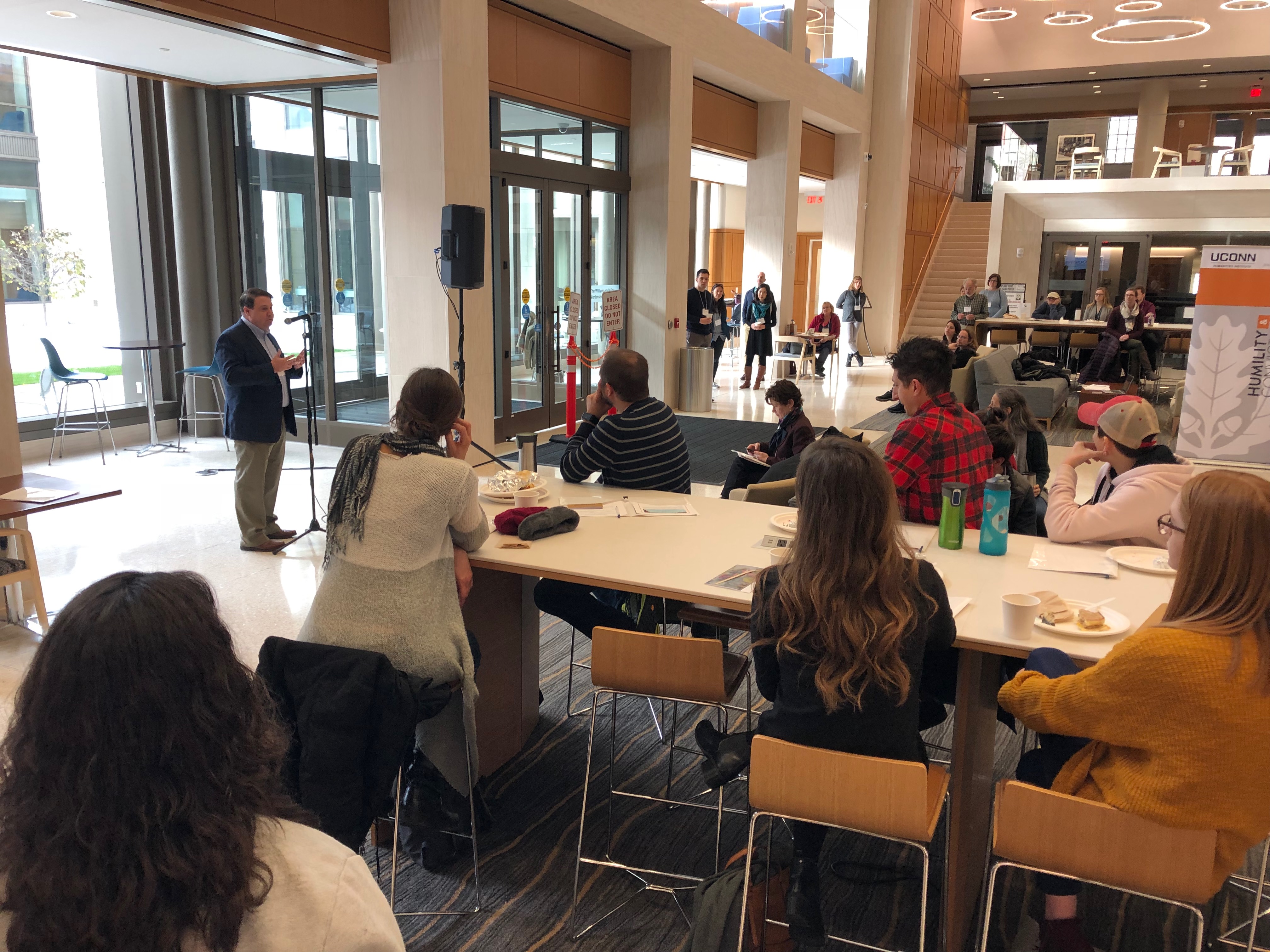
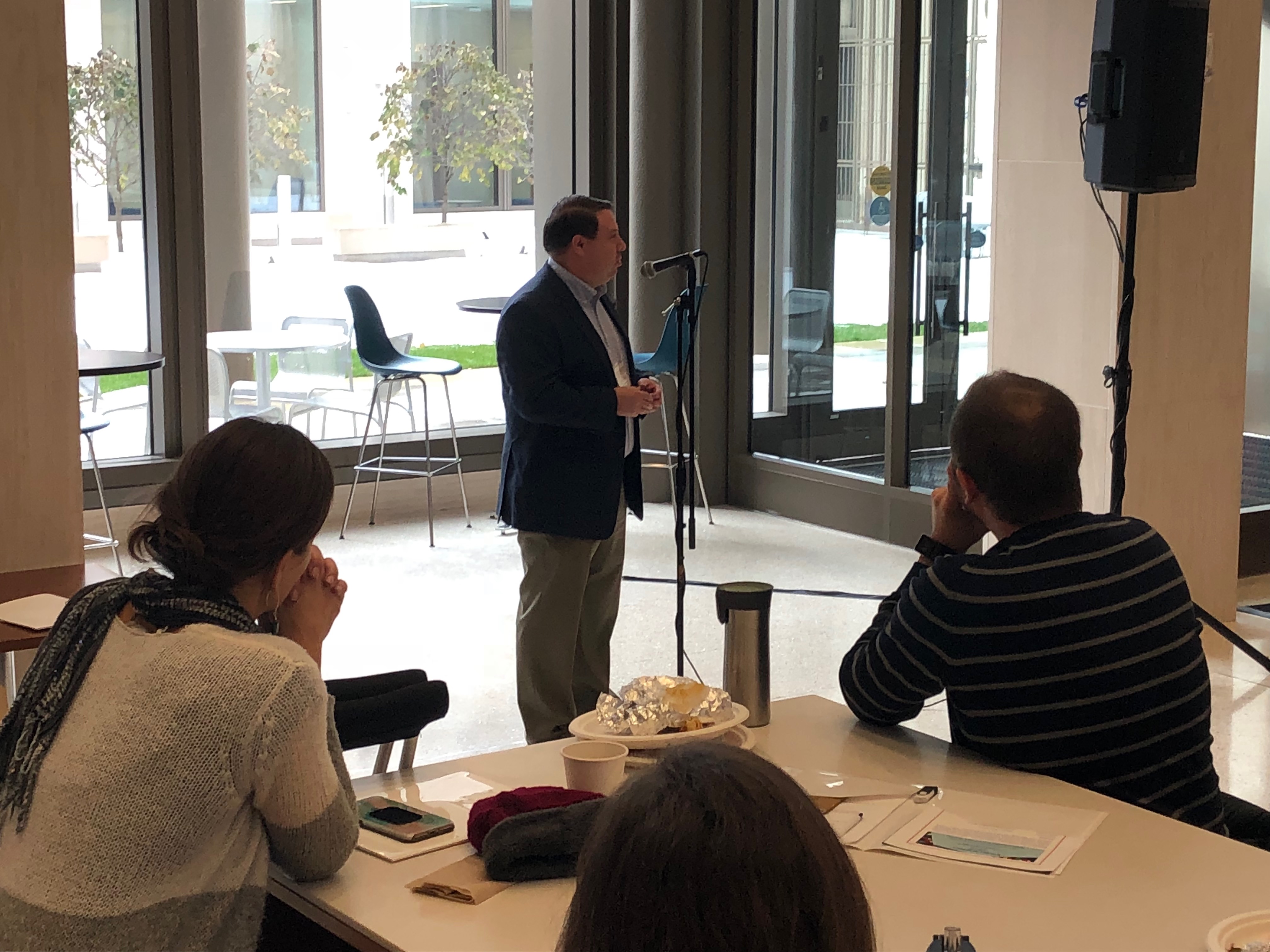
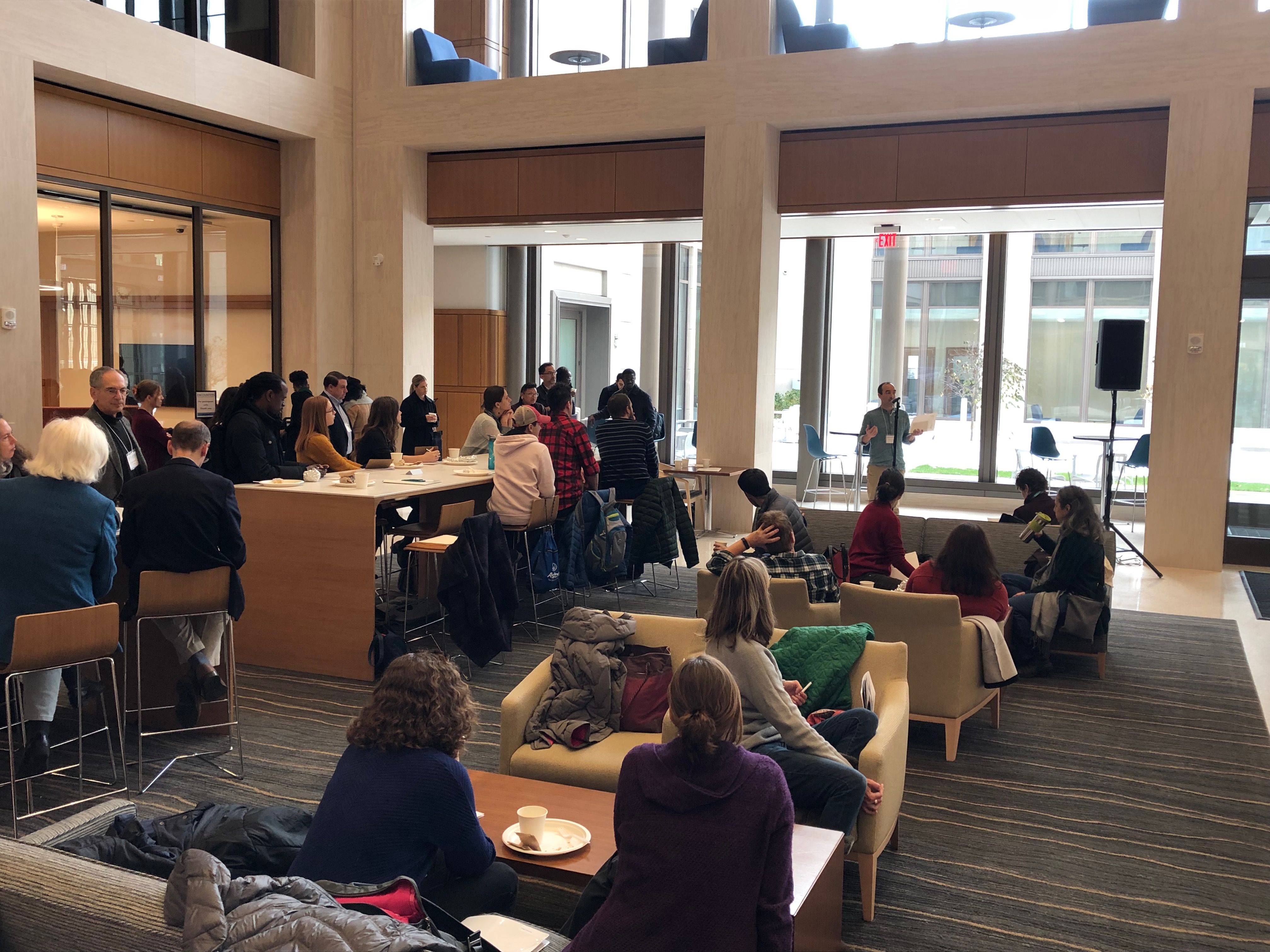
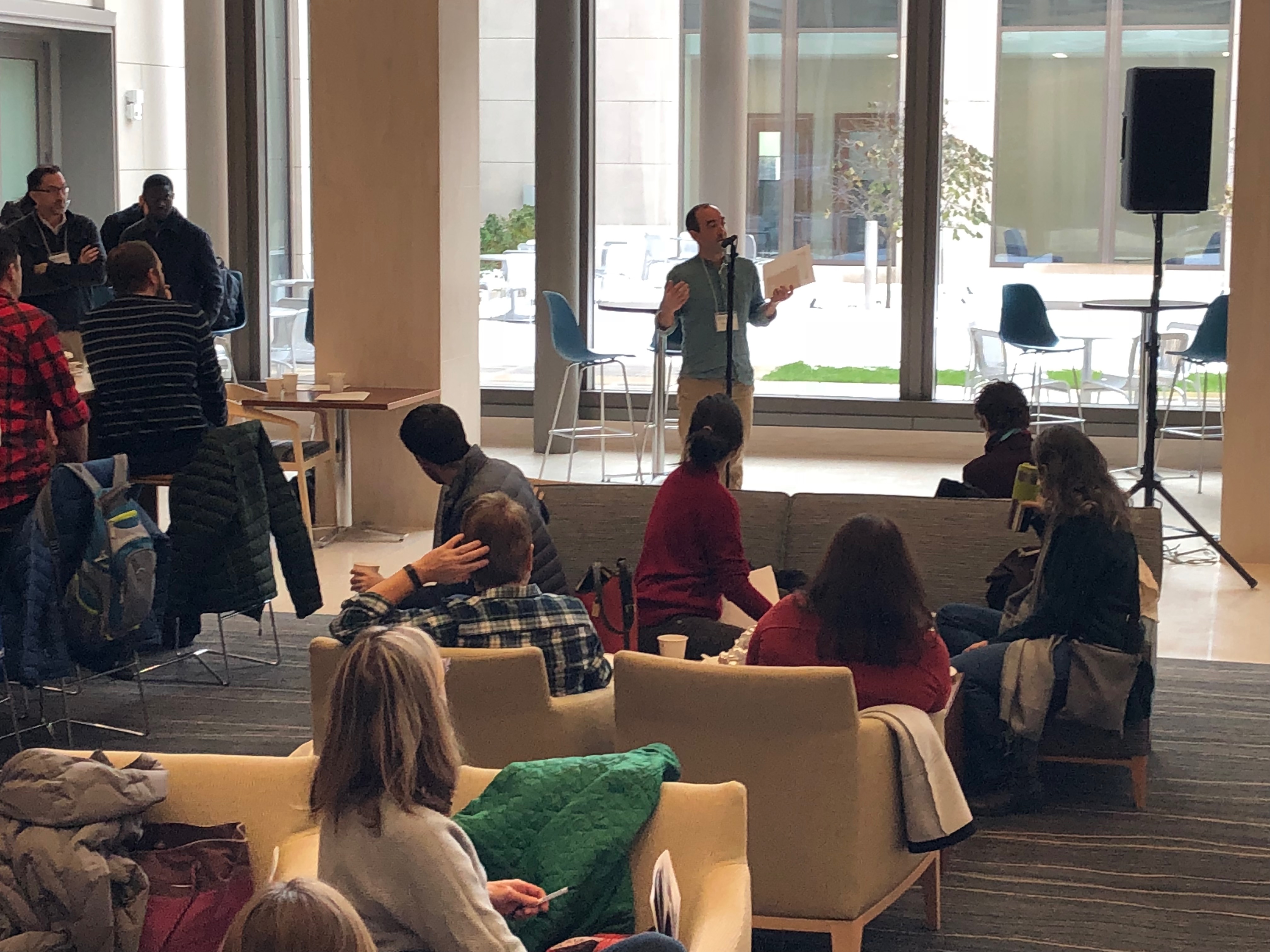
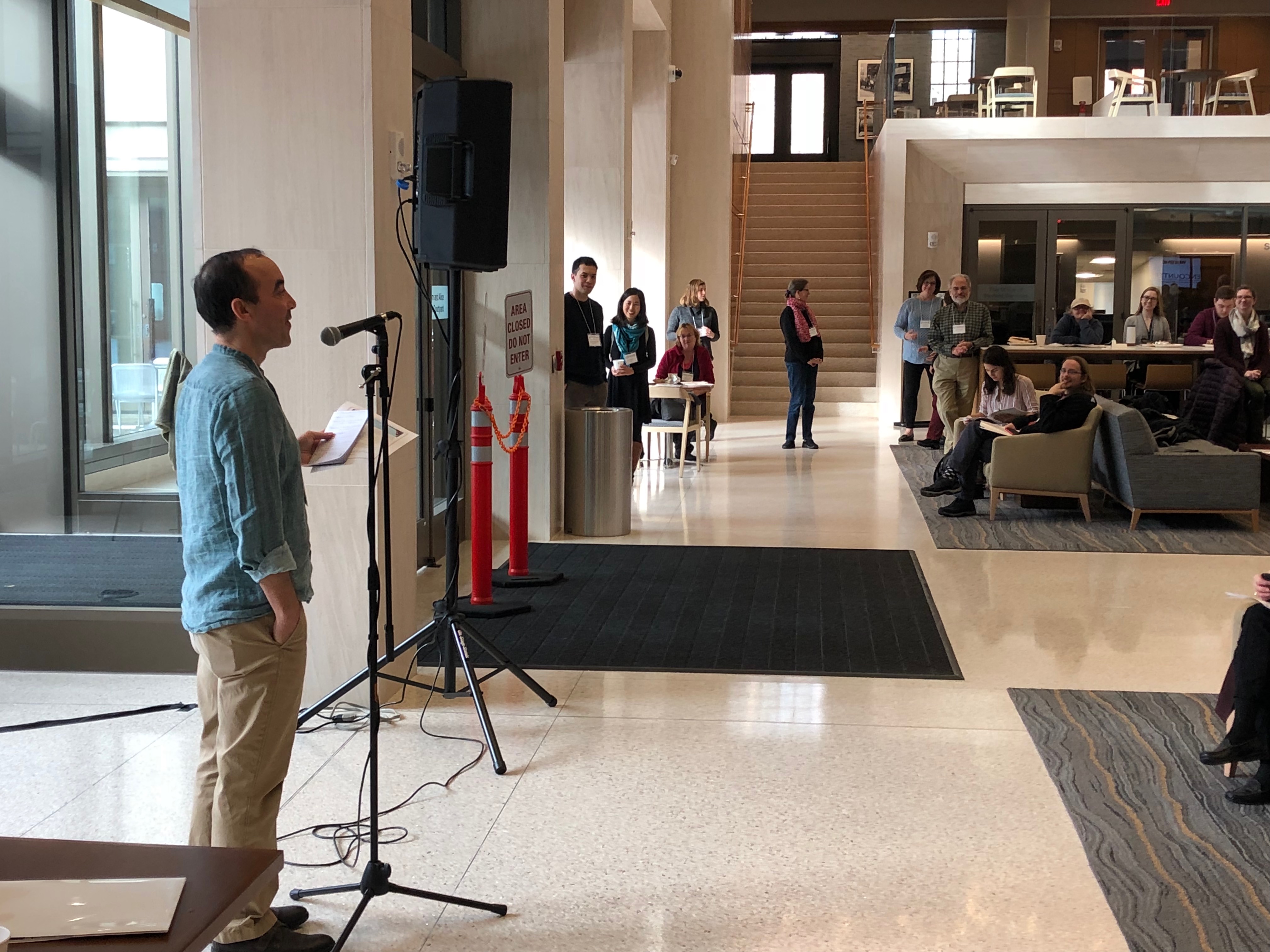
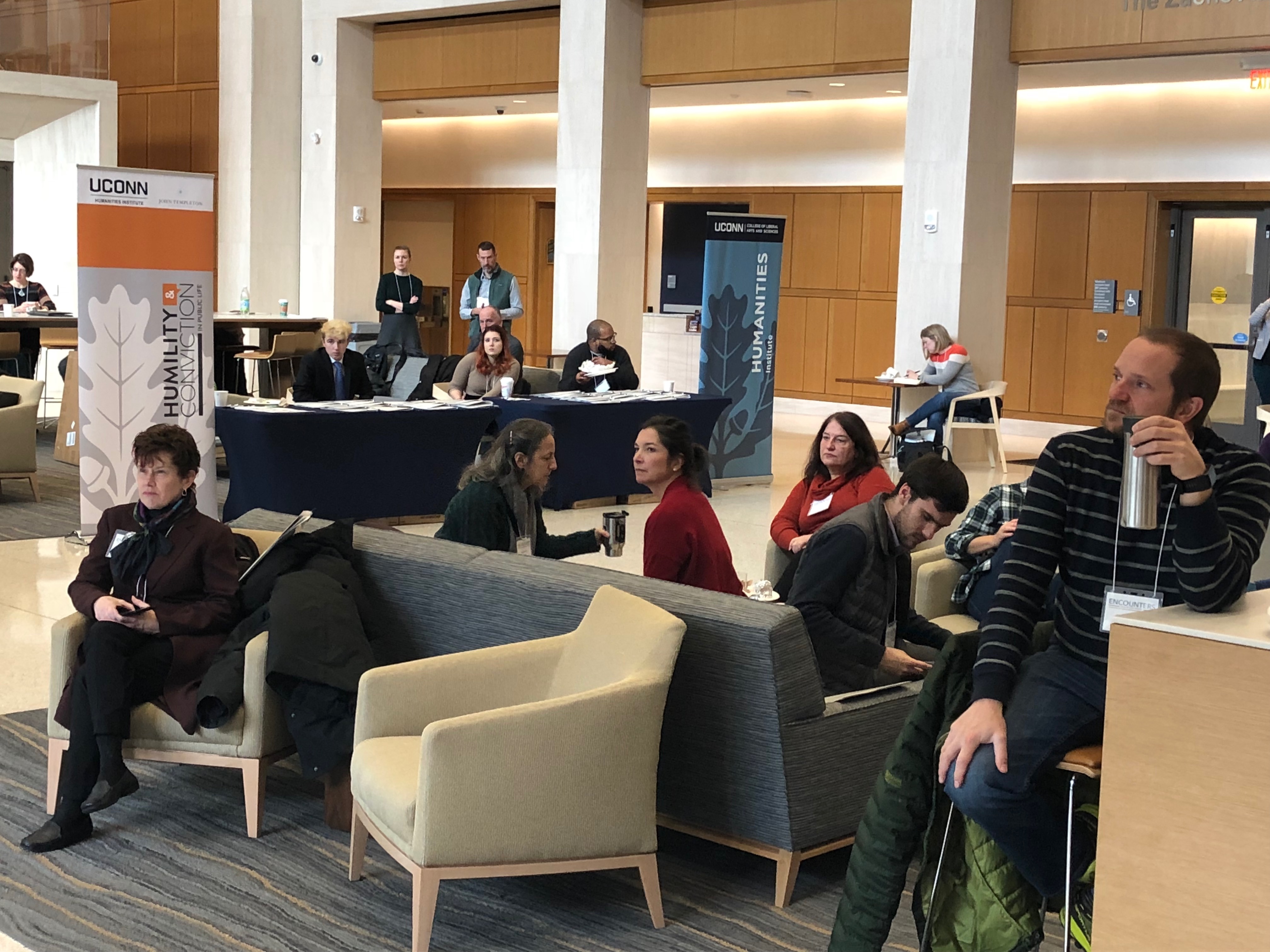

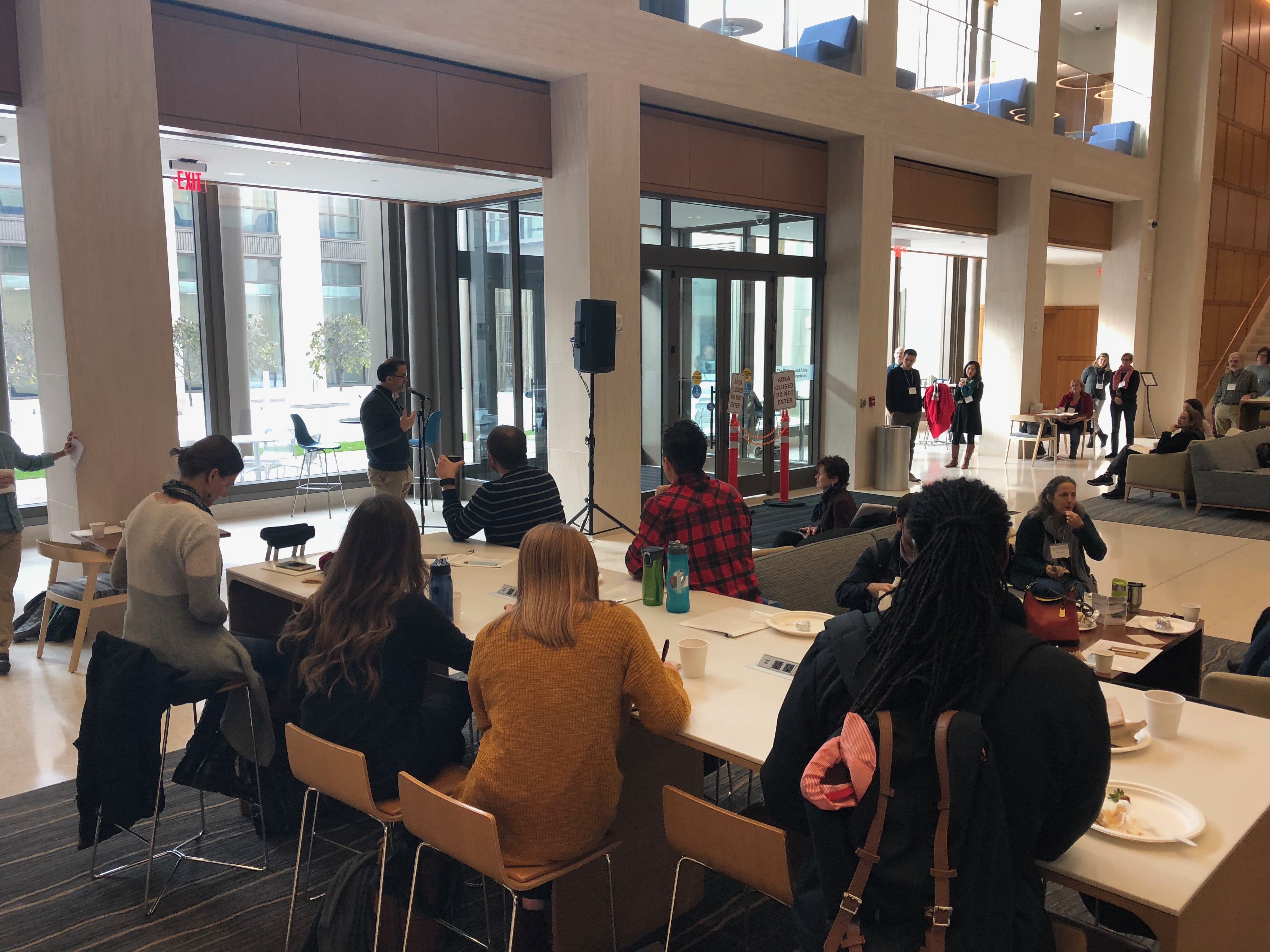
Encounters: The Conference – Workshops
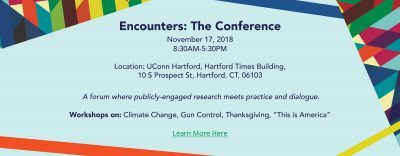
Encounters: The Conference
Date: November 17, 2018
Time: 8:30AM-5:30PM
Location: UConn Hartford, Hartford Times Building, 10 S Prospect St, Hartford, CT, 06103
Cost: FREE
Registration: Closed.
If you would like to be added to the waitlist, please contact Dana Miranda at dana.miranda@uconn.edu.
Introduction:
The Encounters Series, a program dedicated to fostering unexpected conversations around divisive issues and obscure knowledge, began in Spring 2017 with the sponsorship of the Humility & Conviction in Public Life project (University of Connecticut), the Hartford Public Library (Hartford History Center), the Wadsworth Atheneum (The Amistad Center for Art & Culture), Connecticut’s Old State House, and the Akomawt Educational Initiative.
The Encounters Series is a structured-dialogue model that allows participants to come face-to-face and converse about the issues that matter in their community. Encounters dives deeply into these subjects through facilitated, small-group dialogues followed by a “question and answer”-style conversation with UConn faculty and community partners. Readings are provided beforehand to better encourage informed and informal dialogue within conversations that often prove to be polarizing, and thus unproductive.
Encounters: The Conference is a participatory event around the power of dialogue. Participants will explore various dialogic models and learn how they can bring such practices to their own settings. In particular, the conference will demonstrate a new, collaboratively-developed dialogue model, created in Connecticut, that communities can run anywhere and everywhere. Attendees will experience one of four Encounters in the morning, learn how to create and run dialogues in our How-to Workshop, and take part in a broader, concluding conversation about public dialogue with experts from around the country.
Schedule:
8:30 Registration opens
9:00-10:00 Breakfast and Opening Program (breakfast will be provided)
10:00-12:00 Encounters Sessions
12:00-1:00 Lunch (provided)
1:00-3:00 How-to Workshops / Dialogue about Dialogue
3:00-3:30 Break
3:30-5:00 Dialogue Implementation and Program Strategizing
5:30-6:30 Closing Reception
Encounters Descriptions:
Climate Change: The effects of climate change on the environment have been hotly contested. Some argue that humanity has been the catalyst for these changes, while others believe them to be a natural part of the Earth’s climatological development. This Encounters will invite participants into a conversation about climate change and consider how political disagreements about this issue teach us about the world we all inhabit.
- Rapid Change – A Tale of Two Species by Elaina Hancock
- The Scientific Consensus on Climate Change.pdf by Naomi Oreskes
- Hidden Costs of Climate Change Running Hundreds of Billions a Year by Stephen Leahy
- Why we are poles apart on climate change.pdf by Dan Kahan
- History and future of the scientific consensus on anthropogenic global warming .pdfby Fritz Reusswig
Gun Control: The Second Amendment to the U.S. Constitution says, “A well regulated militia, being necessary to the security of a free state, the right of the people to keep and bear arms, shall not be infringed.” The need for this amendment has been questioned in the face of gun violence now occurring in modern society. This Encounters will invite participants to dialogue about these dueling issues.
- Second Amendment, US Constitution .pdf
- Historical Context of the Second Amendment.pdf by Roxanne Dunbar-Ortiz
- Mass shootings since Sandy Hook, in one map by German Lopez and Kavya Sukumar
- School-Shooting Survivors Bear Their Scars, and Bear Witness as told to Jared Soule and Amelia Schonbek
“Thanksgiving”: Thanksgiving has been observed in the United States intermittently since the 1780s. Increasingly, historians and Indigenous peoples are drawing our attention to the problems inherent in the traditional American Thanksgiving narrative. This Encounters will invite participants to explore this “holiday” in greater depth and consider different perspectives on this national observation.
- Thanksgiving: A Native American View by Jacqueline Keeler
- Presidential Thanksgiving Proclamations.pdf, 1861-1869
- Edward Winslow’s Account of Plymouth.docx, 1621
- William Bradford’s History of Plymouth Plantation.docx, 1621
This Is America: Childish Gambino’s 2018 music video for This is America sparked a national conversation about history, race, and American popular culture. This Encounters will explore the interplay of history, race, and artistic expression as seen in the video. Participants will be invited to examine the ways pop culture engages with and responds to pressing issues in American society. ***Please note: as part of this Encounters, we will be watching the video for This is America, which contains violent content.***
- This Is America by Childish Gambino
- The Cast of ‘Atlanta’ on Trump, Race and Fame by Joe Coscarelli
- The Difficulty in Defining Donald Glover’s ‘This is America’by Kitanya Harrison
- ‘This Is America’ Is the New Minstrel Show by Armond White
- Why the Dancing Makes ‘This Is America’ So Uncomfortable to Watch by Aida Amoako
- Black Genius: A Privilege Afforded Only to Straight Black Men by George Johnson
- Minstrel Choruses.pdf
Afternoon Workshop:
The first afternoon session (1:00-3:00) will be devoted to giving you the tools you need to hold an Encounters event in your community. Participants will have the ability to choose between one of three workshops tailored to the needs of their particular type of organization: 1) colleges/universities, 2) non-profits and community organizations (libraries, museums, nonprofits, religious organizations, etc.), and 3) high schools/youth groups. Participants will receive resources, including a handbook, which will help them to plan their own dialogues. Participants will also have the opportunity to talk about other dialogue models that could be useful in their communities, as well as to share their own experiences and expertise.
Registration: Closed.
If you would like to be added to the waitlist, please contact Dana Miranda at dana.miranda@uconn.edu.
This event is supported by Campus Compact for Southern New England (CCSNE), a nonprofit coalition that advances the public purposes of colleges and universities by deepening their ability to improve community life and to educate students for civic and social responsibility. This event is part of CCSNE’s Public Discourse Initiative which promotes dialogue and discourse as a key approach to creating a just, equitable and sustainable democracy.
Co-sponsored by:
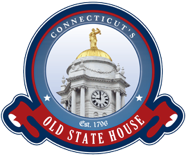
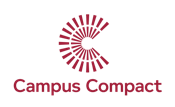
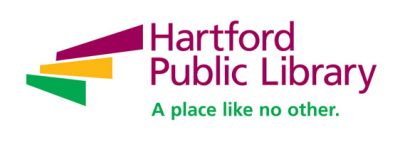

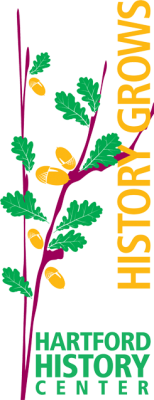
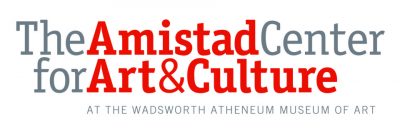
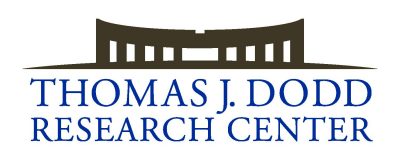
![]()
Tracy Llanera – “‘…The Law of the Land has God’s Anointing’ — Rorty on Religion, Language, and Politics” 11/15/18
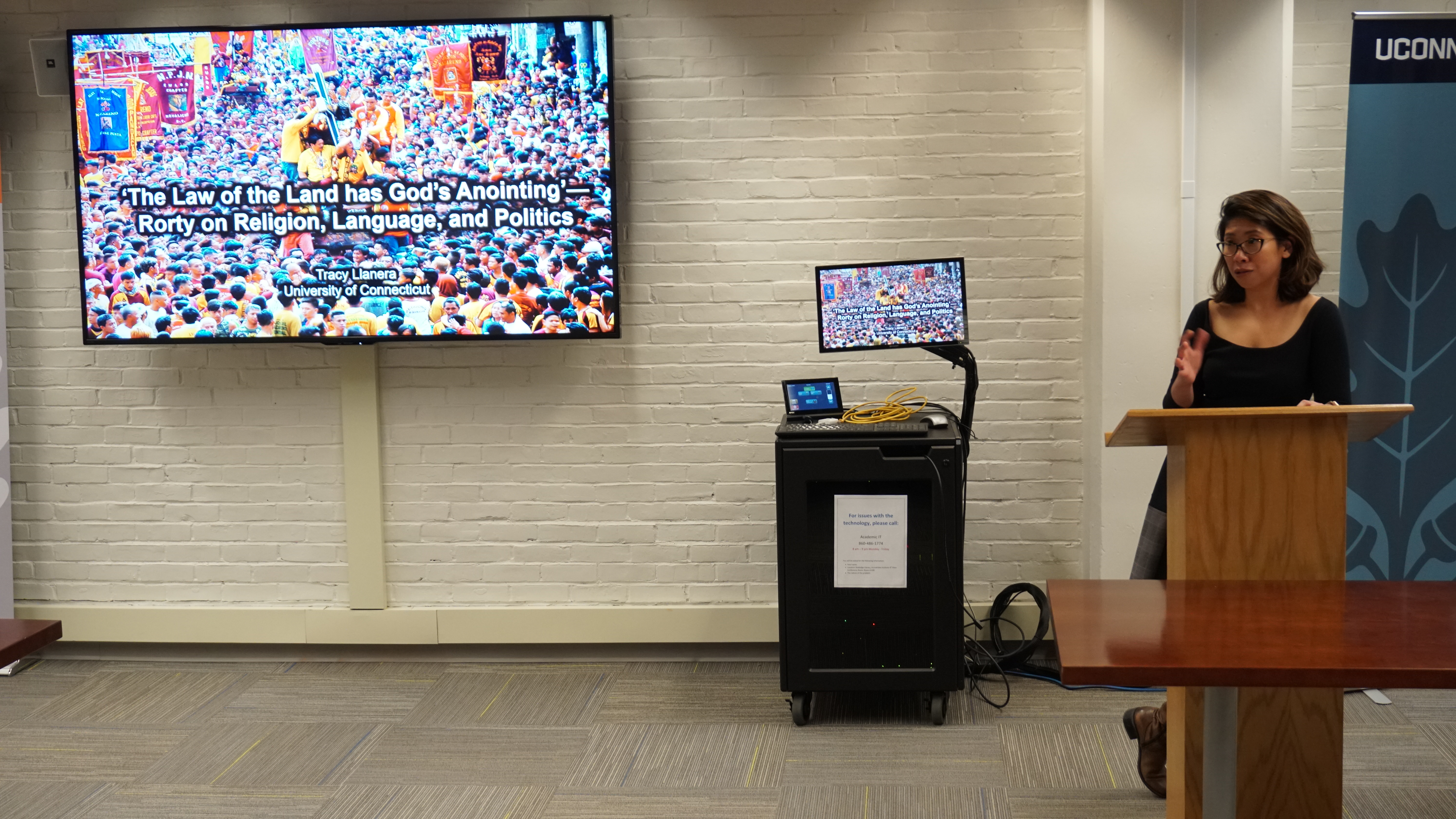
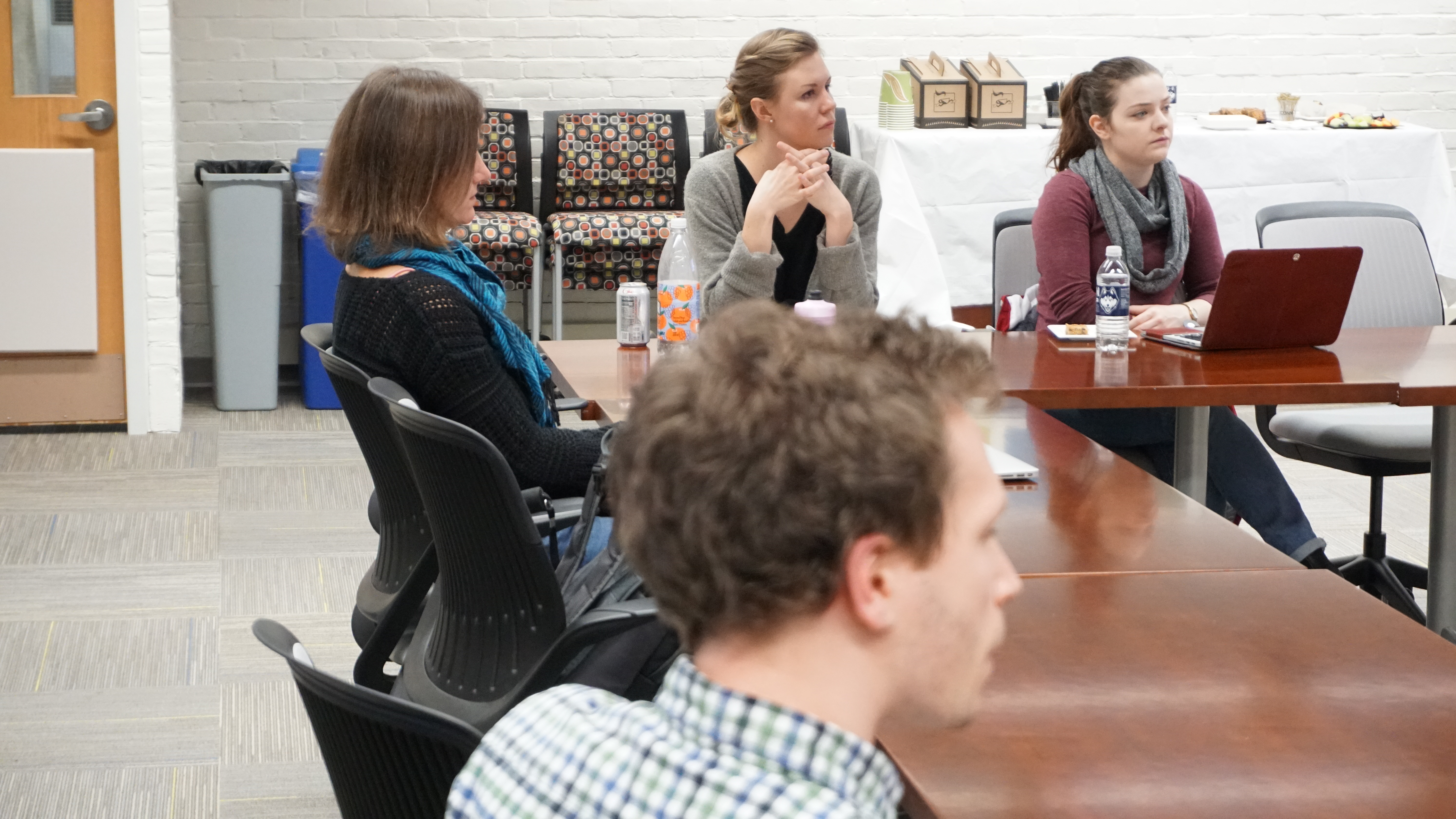
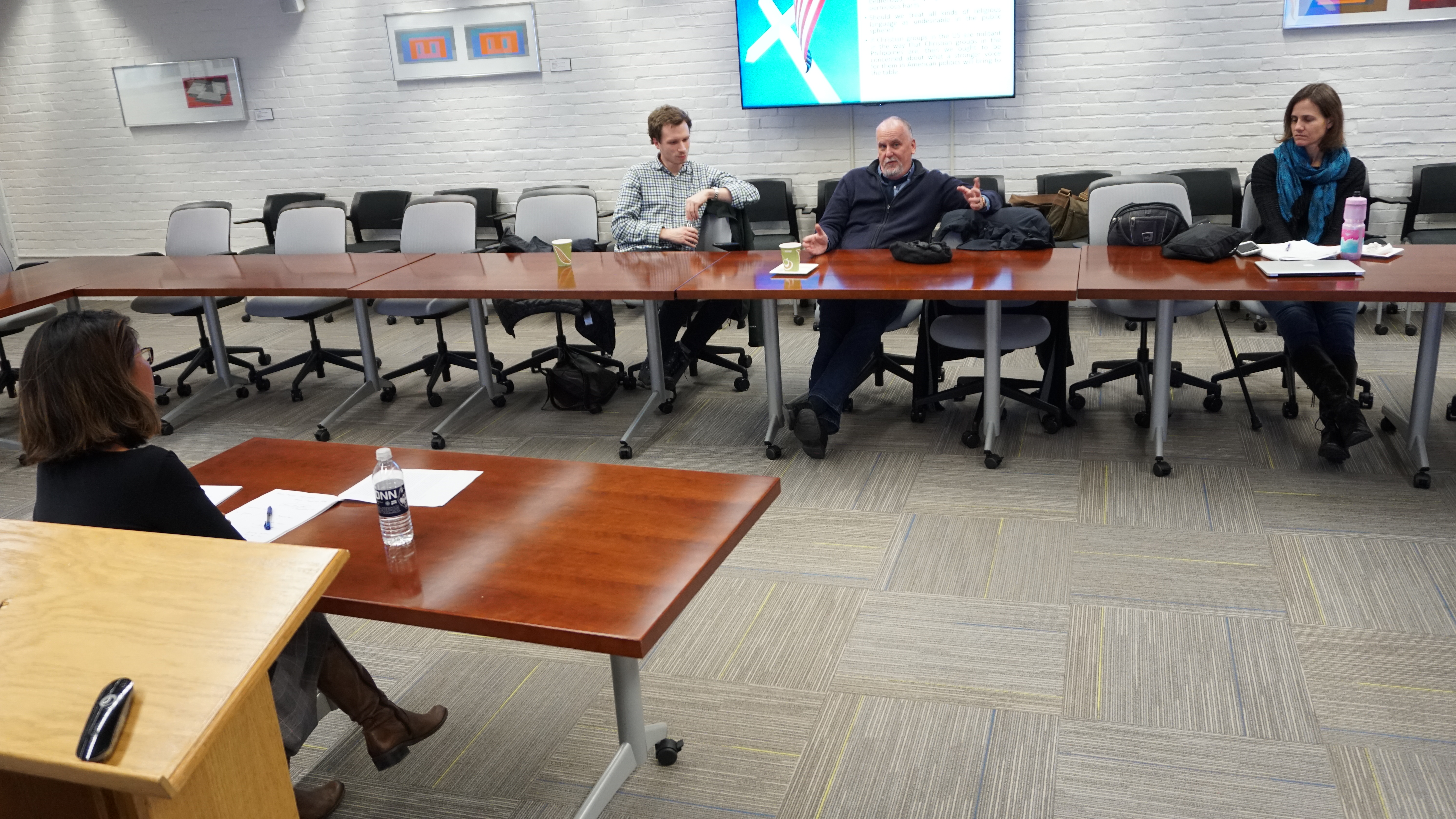
New article by Bloomberg reporter Shannon Sims from New Economy Forum
WhatsApp Groups and Misinformation Are a Threat to Fragile Democracies
In Brazil, social-media-induced polarization and apathy may linger long after the last vote has been counted.
UConn Forum: “Mark Twain and Political Corruption: The Gilded Age Today”
UConn Forum: “Mark Twain and Political Corruption: The Gilded Age Today”
November 13 • 7:00 pm – 8:30 pm
The UConn Forum at the Mark Twain House is a panel discussion that examines current events through the lens of Mark Twain. Panelists are distinguished academics from the University of Connecticut College of Liberal Arts and Sciences. The panel is chaired by Davita Silfen Glasberg, Dean of the College of Liberal Arts and Sciences.
The theme of the November panel will be political corruption, as framed through an excerpt from The Gilded Age: A Tale of Today. The Gilded Age was Twain’s first novel, which he co-authored with his Hartford neighbor Charles Dudley Warner. Published in 1873, the book uses satire to criticize the greed and political corruption of the era, which subsequently became known as “the Gilded Age.” It is the perfect lead-in to a discussion of the enduring issue of corruption and of the role that money has played, and continues to play, in society and the political system.
All of the panelists are from the University of Connecticut. They are:
Jeffrey W. Ladewig, Associate Professor of Political Science. Ladewig’s primary areas of research and teaching focus on the U.S. Congress and the American presidency.
Michael E. Wallace, Professor of Sociology. Wallace researches social stratification and inequality, the sociology of work and organizations, and the social organization of capitalism in the U.S. and other affluent democratic countries.
Maureen Croteau, head of the Department of Journalism. Croteau was named New England Journalism Educator of the Year by the New England Newspaper & Press Association in 2014, and is a member of the Connecticut Journalism Hall of Fame.
Lewis R. Gordon, Professor of Philosophy. In addition to theories of social transformation, decolonization, and liberation, Gordon’s research in social and political philosophy also addresses problems of normative political concerns beyond justice.
This event is free. Click here to register.
Sponsored by CT Humanities.
